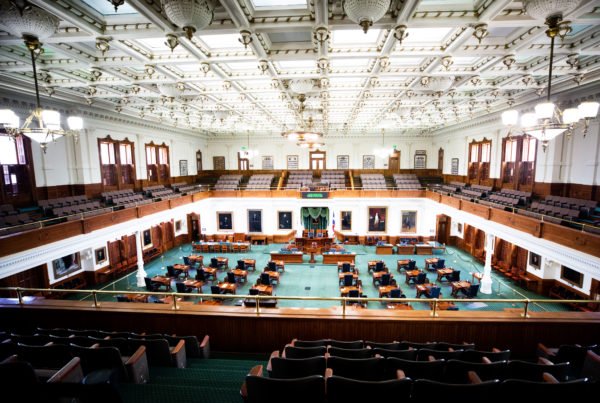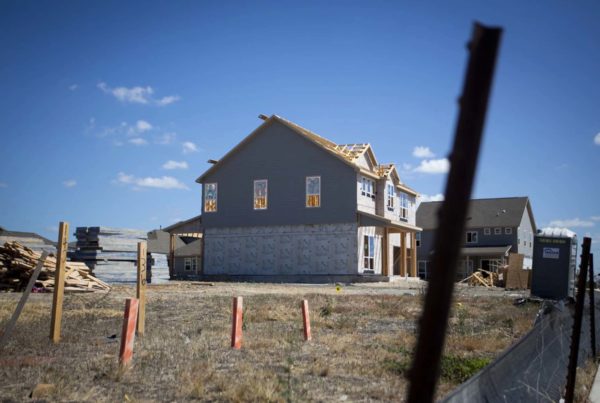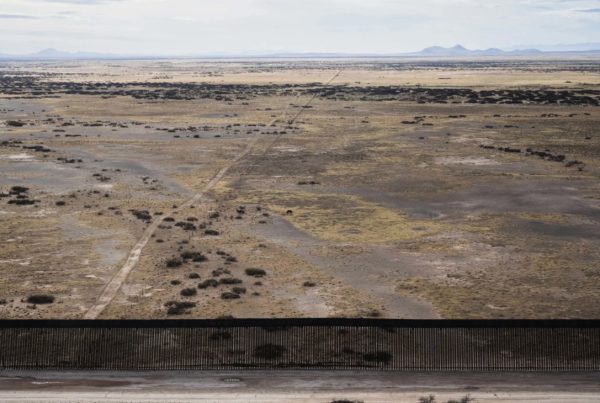From Texas Tech Public Media:
Driving from Lubbock, it takes a little more than an hour to cross the state line into New Mexico. Since the state began recreational marijuana sales last year, it’s become a popular destination for certain travelers.
“It seems like every week or weekend we hear about someone making a trip to Colorado or New Mexico,” said Jake Syma, president of Lubbock’s chapter NORML, the National Organization for the Reform of Marijuana Laws.
Syma is also a longtime follower of Texas politics, and offers this general guidance to Texans:
“Consume it all there, don’t bring any back,” Syma said. “Because the penalties in Texas are extremely draconian, and always have been.”
Syma said he doesn’t actually consume cannabis himself — He’s more of a supporter of what he calls freedom issues. That’s one of his big arguments for why Texas should reform its own laws. Another comes down to economics.
It’s estimated that’s state could add at least 400 million dollars in revenue if it legalized and taxed cannabis sales. What could that go toward? Well, Syma believes offsetting property taxes is a good option.
“If Governor Abbott wants to declare victory for all property owners in Texas, this is a good way to approach it in my opinion,” he said.
Texans pay some of the highest property taxes in the country. That money funds public schools and other essential services, but can also lead to sticker shock for Texas homeowners. This year, state lawmakers are working with a historic budget surplus, and have prioritized easing some of that tax burden for homeowners.
While it’s unlikely to happen, one far-out idea floated by both party goers and policy wonks is if taxes from legal cannabis sales could somehow offset property taxes.
» TELL US: What do you want to know about property taxes in Texas?
Does this happen anywhere in the U.S.?
Not currently. Right now, according to the Urban Institute, about a third of states have legal, taxed cannabis sales. Adam Hoffer with The Tax Foundation, a policy nonprofit, said none of them directly tie that revenue to property tax relief.
“Most typically, these taxes go into a general fund,” Hoffer said. “There’s probably a good reason for that. That can fund whatever the state needs most.”
New Mexico taxes cannabis at 12% of its retail price, with proceeds designated for counties and municipalities.
Colorado started recreational marijuana sales in 2014. Their tax revenue goes into a few different pots, including one for education. Hoffer said that’s pretty common.
“Earmarking these tax revenues for something that’s really popular is something that we see as a way to get more supports behind this,” he said.
While there’s no existing framework for tying marijuana tax revenue to lowering property taxes, Hoffer said using a revenue source to offset these taxes isn’t unheard of.
“Wisconsin, for example — All of their lottery revenue is by constitutional amendment used to offset property tax bills, explained Hoffer.
Intrigued by this question, though, he did some rough math, accounting for the roughly 12 million housing units in Texas.
Hoffer’s conclusion: “If Texas were to earmark all of that (estimated) $400 million toward property tax relief, we’d be looking at somewhere in the neighborhood of $33 to $50 per building, per year.”
Given the average Texas homeowner pays $3,797 in property taxes each year, this idea wouldn’t make much of a dent.
James Henson with the Texas Politics Project took this thought experiment in a different direction. He said, hypothetically, adding a new funding stream for public education — be it from cannabis taxes or anything else — could lower property taxes.
“Given the linkage between public school public education and property taxes, one can conceive of, you know, increasing the tax flow from one area than reducing it in the other,” Henson said.
But, he added, that could be a logistical nightmare and require many steps to establish.
Recent polling from the Texas Politics Project shows a majority of Texans are in favor of marijuana reform. But Henson said political leaders are unlikely to budge on that issue this session, or anytime soon.















